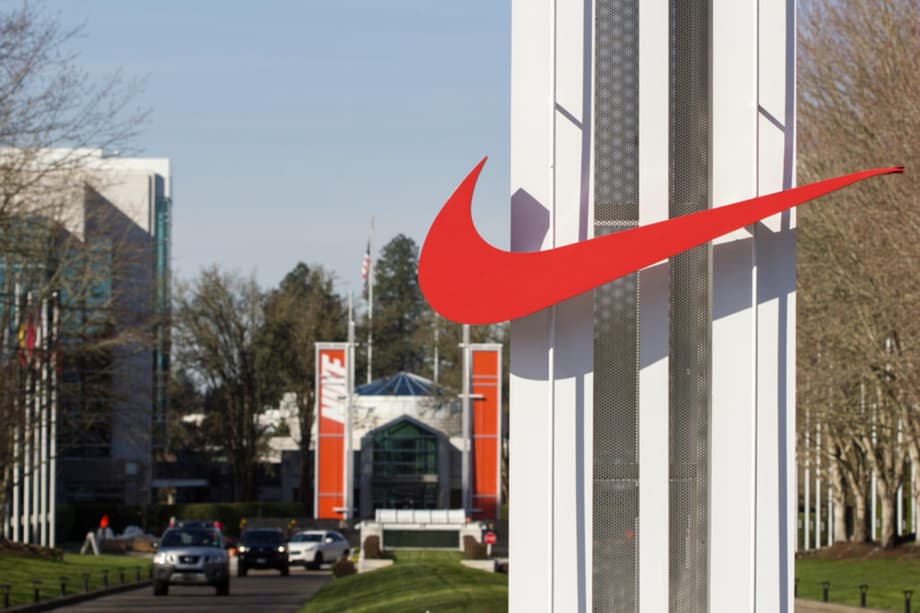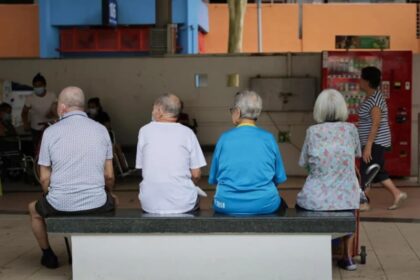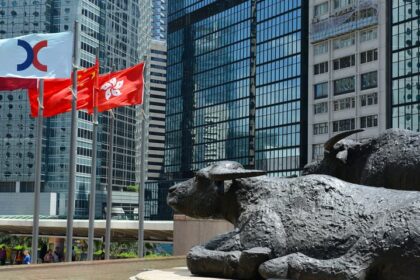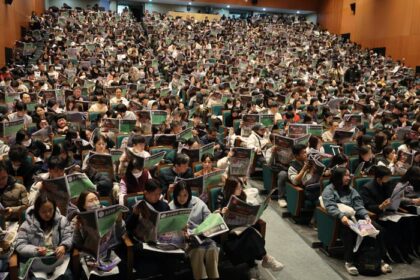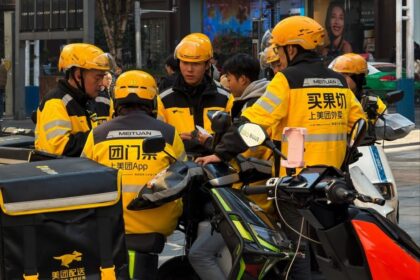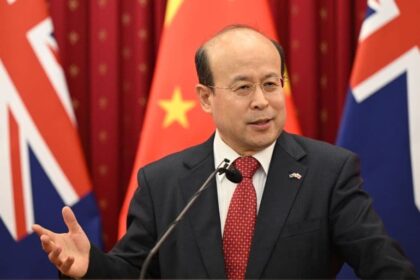A manufacturing jolt in Tangerang
Indonesia’s footwear hub in Tangerang, Banten, has been hit by a fresh wave of job losses after PT Victory Chingluh Indonesia, a key contract producer for Nike, laid off about 1,800 workers. The company’s shipments faced quality rejections and were returned from export markets, triggering a downsizing that unions say was avoidable. The decision lands at a sensitive moment for Indonesia’s labor intensive industries, which are juggling rising costs, tighter global demand, and fast changing brand strategies.
- A manufacturing jolt in Tangerang
- What triggered the terminations
- How many jobs and who is affected
- Pay, skills, and the wage debate
- Relocation pressure and the Central Java option
- Nike headwinds ripple through suppliers
- Government response and worker protections
- What it means for the footwear hub around Tangerang
- Near term outlook
- Key Points
The scale matters for the local economy and for the global sneaker pipeline. Indonesia is one of Nike’s top manufacturing bases, alongside Vietnam and China, and the country supplies a large share of the workforce that produces footwear and apparel for major brands. Industry officials say Indonesians account for roughly 30 percent of the factory workforce serving Nike and Adidas worldwide, a reminder of how central the country is to the global sportswear supply chain.
Labor leaders argue the layoffs stem from management failures in quality control rather than from wage pressure. Employer groups counter that high regional minimum wages in Tangerang, unclear fees, and a shortage of qualified workers have pushed costs up and productivity down. Out of roughly 3,000 workers first flagged for downsizing, 1,800 have been let go, with the union warning that more could follow if the company’s internal audit deems defects too extensive to rework. At the same time, business groups are urging local authorities to keep the factory from relocating fully to Pekalongan in Central Java, where labor and overhead costs are lower.
What triggered the terminations
Executives have cited mass returns of exported products that failed to meet brand standards. For contract factories, a rejected shipment can be devastating. Returned goods tie up cash, force rework or scrap, and can slash future order volumes. When several batches fail at once, the production schedule and staffing plan collapse.
Quality rejections and returns
Footwear for global brands must clear multiple layers of quality control before shipping. Inspectors check stitching, bonding, glue lines, midsole alignment, color accuracy, labeling, and packaging. A single error repeated across thousands of pairs can lead to a full shipment being rejected. If problems are minor and fixable, a factory may rework the goods. If they are structural or widespread, rework can be costlier than remaking the product, especially when delivery deadlines have already been missed.
Why lapses may have surged now
A mix of pressures can nudge defect rates higher. These include high turnover on production lines, compressed timelines as brands adjust product mixes, changes in materials or component suppliers, and cost containment that thins out in line supervision. Training gaps and strained maintenance routines also raise the risk of bonding or stitching failures in large volume runs. When budgets tighten, quality safeguards are often stretched just as complexity in the product lineup rises.
Unang Sunarno, chair of the Congress of Indonesia Unions Alliance (KASBI), argues that workers are paying for management decisions that did not protect quality across the process.
We oppose the unilateral layoffs because this is no fault of the workers, but rather a problem with the production system. Workers should not be made victims of management failures.
Factories facing returns can negotiate price discounts, repair allowances, or revised delivery windows with buyers. If those talks falter, the plant absorbs the hit. In a thin margin business, back to back quality failures can rapidly push management to cut shifts, reduce overtime, or eliminate lines entirely. That is the context for Victory Chingluh’s move.
How many jobs and who is affected
Union representatives say about 1,800 workers have received termination notices, with hundreds more still in process. Management initially listed around 3,000 positions for possible reduction. Reports in late October indicated that a second round could affect 2,804 additional workers at the company’s Pasar Kemis factory, although one of its other facilities in Cikupa was said to be operating normally with acceptable quality. The picture can vary by plant within the same group, depending on product lines, clients, and recent audit results.
Andi Kristiantono, secretary general of KASBI, says the core issue is mismanagement and that layoffs are the wrong remedy for a problem rooted in production systems.
The current problem is not purely the workers’ fault, but a result of the company’s mismanagement.
The union has pressed for a voluntary separation scheme rather than unilateral terminations. In recent talks, both sides discussed packages that include full legal entitlements and, for volunteers, enhanced severance equivalent to double the standard calculation under Indonesian labor law. Union leaders also asked for transparent communication to prevent anxiety among workers at sites that are still running normally.
Pay, skills, and the wage debate
Unions contend that major brands producing in Tangerang can honor regional wage rules. KASBI leaders say branded footwear factories have the financial capacity to meet local standards. They argue that blaming wages distracts from preventable quality breakdowns and poor planning. Employers, represented in the region by the Indonesian Employers Association, counter that the cost structure has shifted against factories in Tangerang. They point to a combination of higher minimum wages, uncertain ancillary fees and levies, and social pressure to prioritize local recruitment even when job seekers lack the skills that modern plants demand.
Businesses say the result is a skills gap that hurts productivity and quality. Leaders from the employers association in Tangerang have begun coordinating with local authorities on training programs for unemployed residents, aiming to align skills with industry needs. The goal is to reduce the time and expense factories spend on training new hires, raise first pass yield on the lines, and keep defect rates low enough to pass export inspections.
Relocation pressure and the Central Java option
When labor and overhead costs outpace productivity gains, companies often look to regions with lower expenses. That is why a potential shift to Pekalongan in Central Java is on the table. Central Java offers lower statutory wages and cheaper land, although logistics can be more complex. Employer groups in Tangerang are asking local leaders to improve the business climate so that Victory Chingluh keeps at least part of its operations in Banten even if it expands elsewhere. The association’s message to officials is straightforward, keep the plant viable, or risk a deeper local jobs drain.
Relocation decisions are rarely simple. Companies must weigh supply chain proximity, talent pipelines, transportation, export processing times, and community relations. If quality problems are concentrated at one location, executives may decide to restructure lines there while protecting output at the more stable site. That appears to be the approach today, with management emphasizing that another plant in the group still meets brand requirements.
Nike headwinds ripple through suppliers
The Nike ecosystem has been under pressure. The company set a plan to trim about 2 billion dollars in expenses over three years, streamline product assortments, and speed up automation to support profitability. At the same time, consumer demand for discretionary goods has cooled in several key markets. Inventory mistakes in prior seasons left more discounted goods on the market, and competition has heated up as rival brands gained share in running and lifestyle categories.
Those shifts reach the factory floor quickly. A leaner product lineup can mean fewer purchase orders for certain silhouettes, narrower size runs, or later approvals on components while designs change. Rush approvals and compressed calendars raise quality risks, especially if training and staffing do not keep pace. Suppliers can also face new cost pressures when buyers renegotiate, asking for lower unit prices or faster turnaround. Quality failures then become more likely if plants do not add supervision and inspection capacity to match the pace.
Trade policy has added uncertainty. Tariffs and shifting import rules can push global brands to rework sourcing maps, rebalance volumes between Vietnam, Indonesia, and China, or seek capacity in new locations. Suppliers that ride the crest of a particular product cycle or geography can suddenly face smaller allocations when strategies pivot. When allocations shrink, the incentive to slash costs increases, and the margin for error on quality shrinks.
Government response and worker protections
Indonesia’s Manpower Ministry has been gathering information on the terminations, while local labor offices in Tangerang have engaged both company and union representatives. Officials monitor whether factories follow the law on severance, notice periods, and social security contributions. Under the Job Creation Law, severance formulas changed, and many employers now frame separation packages within a mix of severance, service pay, and compensation for rights that employees have not used. Voluntary schemes can exceed minimums if both sides agree, especially in high visibility cases involving global brands.
Authorities have also explored financial support to steady factories through demand slumps. A credit program worth around 1.3 billion dollars was announced to help labor intensive sectors such as footwear, textiles, furniture, and food manufacturing. The aim is to bridge cash flow gaps so that viable plants can keep lines active, buy materials, and avoid unplanned closures during weak quarters.
Despite recent job cuts, Indonesia remains a key node in global sportswear manufacturing. Government officials highlight that Indonesians make up a large share of the workforce at Nike and Adidas suppliers worldwide and that the country continues to attract new capacity from foreign investors. That mix of scale, experience, and growing supplier networks is a competitive advantage, provided factories can maintain quality and meet delivery targets without eroding worker protections.
What it means for the footwear hub around Tangerang
Every round of layoffs sends ripples through communities. Shuttle drivers, food stalls, boarding houses, material vendors, and small repair shops all rely on steady factory payrolls. When a major producer trims shifts or reduces headcount, nearby townships feel the hit. The setback comes on top of a broader manufacturing slowdown that has led to thousands of layoffs across textiles and other consumer goods sectors over the past year.
Adis Dimension Footwear, another large Nike partner in Tangerang, eliminated about 1,500 jobs last year during a cost cutting push. Local officials say the wider footwear industry in Banten has faced weak orders, expensive logistics, and a flood of imported goods. That combination leaves less room for error on quality. Plants that keep defect rates low and pass audits consistently are the ones most likely to protect employment during lean periods.
For the region to stay attractive, stakeholders point to three levers. First, improve skills through short, practical training linked to production lines. Second, ease the non wage burden on compliant factories, from permits to logistics bottlenecks. Third, tighten oversight against illegal imports that undercut domestic producers. Progress on those fronts can give companies fewer reasons to relocate and more reasons to invest in better quality systems where they already operate.
Near term outlook
The next few weeks are pivotal for workers at Victory Chingluh’s Pasar Kemis unit. Reports indicate a plan for another layoff affecting 2,804 workers. Union leaders say they will keep pushing for voluntary departures with enhanced compensation and for clear communication on which lines are at risk. They also warn management not to use the situation at Pasar Kemis to pressure workers at other sites. For now, production at the group’s Cikupa factory is described as stable, which may help the company fulfill active orders while it fixes quality issues at the troubled plant.
Stabilizing quality typically requires a back to basics approach. That includes adding line inspectors, auditing each process step for bottlenecks and variation, balancing lines to reduce rework, refreshing training on critical operations like uppers bonding, and tightening incoming checks on materials. Brands often send technical teams to support this reset, because it protects their delivery schedules too. The faster those measures take hold, the better the chances that order volumes stabilize and another harsh trimming of jobs can be avoided.
For workers who have already lost jobs, the priority is severance, job matching, and skills that transfer quickly. Employers have discussed expanding training with local governments. Unions are preparing legal and non legal support to ensure workers receive what they are owed. If the government’s credit program reaches factories that are still viable, it could reduce the temptation to slash headcount when all that is needed is time to clear returned stock, retrain teams, and pass the next round of audits.
Key Points
- PT Victory Chingluh Indonesia, a Nike supplier in Tangerang, laid off about 1,800 workers after export shipments failed quality checks.
- Union leaders say quality control and management failures, not wages, triggered the layoffs.
- Employer groups cite high regional wages, unclear fees, and a shortage of skilled workers as major challenges in Tangerang.
- Roughly 3,000 positions were initially listed for downsizing, and hundreds more are still under review.
- Reports suggest a second round could cut 2,804 additional jobs at the Pasar Kemis factory, while a sister plant in Cikupa continues operating.
- Unions are pushing for voluntary separation with full legal entitlements and enhanced severance.
- Nike’s cost reductions, softer global demand, and shifting product strategies have tightened orders for suppliers.
- Government officials are monitoring compliance and have promoted a 1.3 billion dollar credit program for labor intensive sectors.
- Indonesia remains a core manufacturing base for global sportswear, with Indonesians forming a large share of Nike and Adidas factory workforces.
- Local stakeholders urge better skills training, lighter non wage burdens, and stronger enforcement against illegal imports to keep factories competitive.


